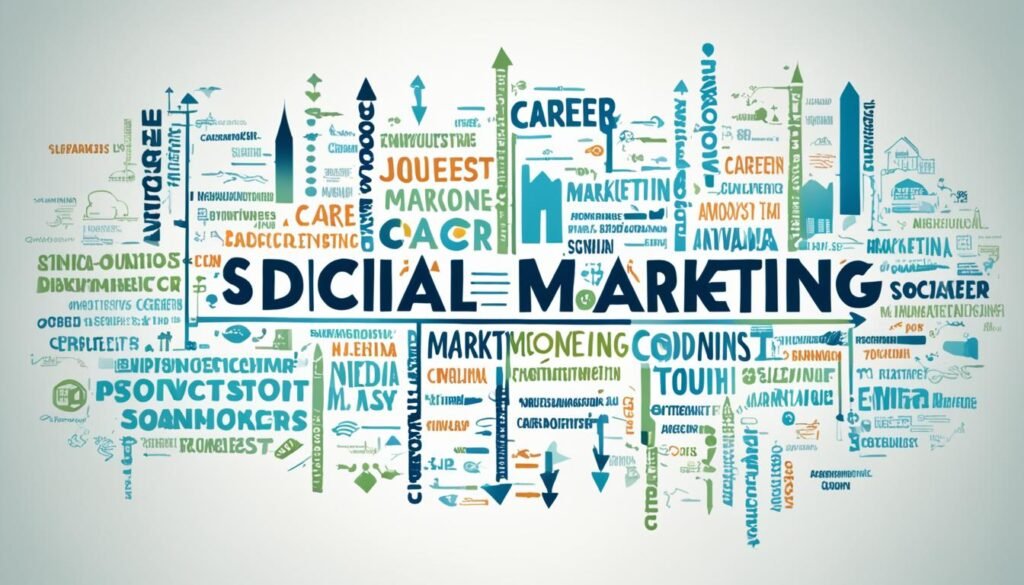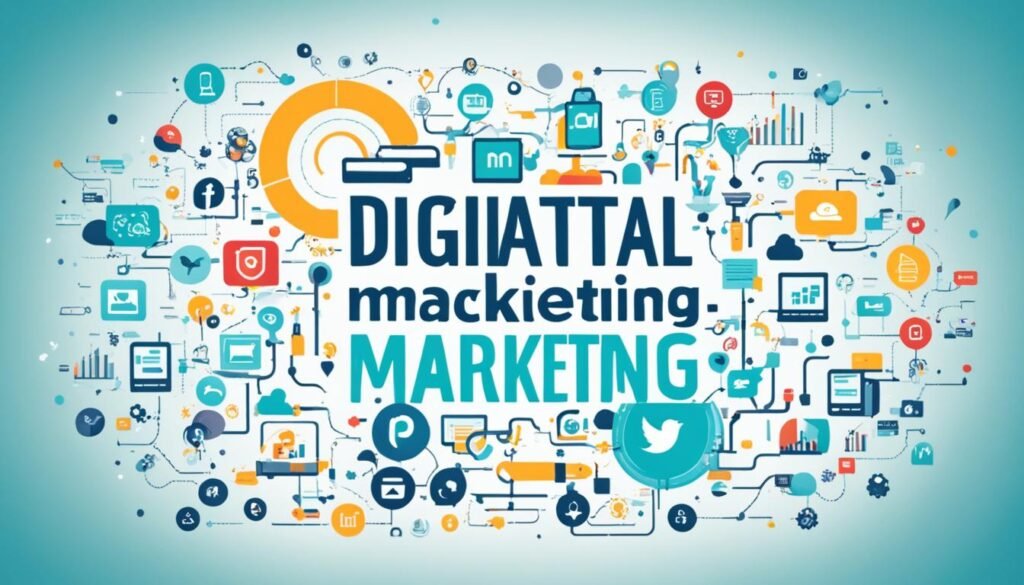A digital marketing coordinator plays a crucial role in creating and executing marketing campaigns in the digital space. They are responsible for developing marketing strategies, analyzing market trends, and targeting specific demographics. Their duties may include managing email marketing campaigns, coordinating social media marketing efforts, and implementing digital marketing initiatives. A digital marketing coordinator is essential in driving brand recognition and increasing online traffic.
Key Takeaways:
- A digital marketing coordinator is responsible for creating and executing marketing campaigns in the digital space.
- They develop marketing strategies, analyze market trends, and target specific demographics.
- Their duties may include managing email marketing campaigns, coordinating social media efforts, and implementing digital marketing initiatives.
- A digital marketing coordinator plays a crucial role in driving brand recognition and increasing online traffic.
- They are essential in ensuring the success of a company’s digital marketing campaigns.
Types of Marketing Coordinators
https://www.youtube.com/watch?v=FB9mcsC1viA
Marketing coordinators play a vital role in driving marketing success by specializing in different areas. Let’s explore the various types of marketing coordinators and their unique responsibilities:
Content Marketing Coordinator
A content marketing coordinator focuses on managing content creation for blogs and social media platforms. They are responsible for developing engaging and informative content that resonates with the target audience. Their expertise lies in crafting compelling narratives and utilizing strategic keywords to optimize content for search engine visibility.
Product Account Coordinator
A product account coordinator supports the sales team in improving customer relationships. They work closely with product managers and account executives to manage product information and ensure smooth communication between the sales and marketing teams. Their primary goal is to drive customer satisfaction and loyalty through effective product marketing strategies.
Influencer Marketing Coordinator
An influencer marketing coordinator is responsible for managing influencer relationships. They collaborate with influencers to create authentic, persuasive content that promotes products or services to a targeted audience. Their expertise lies in identifying suitable influencers, negotiating partnerships, and tracking campaign performance.
Digital Marketing Coordinator
A digital marketing coordinator designs and implements digital marketing strategies. They leverage various digital channels such as social media, email marketing, and online advertising to increase brand visibility and drive customer engagement. Their role involves analyzing market trends, identifying target audiences, and optimizing campaigns to achieve marketing goals.
Social Media Marketing Coordinator
A social media marketing coordinator focuses on creating successful social media campaigns to grow a brand’s audience. They are experts in social media platforms and utilize data-driven insights to develop strategies that drive brand awareness and boost customer engagement. Their responsibilities include content planning, community management, and tracking social media metrics.
These different types of marketing coordinators bring diverse skills and expertise to their respective roles. By working collaboratively, they contribute to the overall marketing success and help businesses achieve their goals.
Required Skills for a Digital Marketing Coordinator

To excel as a digital marketing coordinator, a mix of technical and workplace skills is required.
Technical Skills:
- Analyze sales data
- Conduct market research
- Create promotional materials
- Carry out marketing campaigns
- Evaluate market trends
- Identify target audiences
- Set marketing goals
- Utilize web tools like HTML, CSS, and JavaScript
- Manage SEO/SEM
- Handle ad server tools
- Manage projects
Workplace Skills:
- Effective communication
- Organizational skills
- Creativity
- Analytical thinking
- Ability to work in a team
- Ambition
A digital marketing coordinator must be proficient in technical skills such as analyzing sales data, conducting market research, creating promotional materials, and carrying out marketing campaigns. They should also have the ability to evaluate market trends, identify target audiences, set marketing goals, and utilize web tools like HTML, CSS, and JavaScript.
Furthermore, workplace skills such as effective communication, organizational abilities, creativity, analytical thinking, and being a team player are vital for success in this role. The ambition to drive results and achieve marketing objectives is also crucial for a digital marketing coordinator.
Salary Estimates for a Digital Marketing Coordinator

When considering a career as a digital marketing coordinator, it’s important to understand the salary landscape associated with this role. According to Glassdoor, the average salary for a digital marketing coordinator in the US is $51,851 per year.
This average salary includes not only the base pay but also additional sources of income that can contribute to a higher earning potential. Some of these additional pay elements may include commissions, bonuses, tips, and profit sharing opportunities. The exact amount of additional pay will depend on factors such as company size and industry.
It’s worth noting that the salary of a digital marketing coordinator can vary depending on experience, location, and specific job responsibilities. Higher levels of experience and expertise in areas such as performance marketing or specialized digital campaigns can lead to higher earning potentials.
Ultimately, the salary of a digital marketing coordinator reflects the demand for skilled professionals in this field. As businesses increasingly rely on digital marketing strategies to drive growth and engage with customers, the role of a digital marketing coordinator becomes even more critical.
Key Points:
- The average salary for a digital marketing coordinator in the US is $51,851 per year.
- Additional pay elements such as commissions, bonuses, tips, and profit sharing can contribute to higher earning potentials.
- Salary can vary based on factors such as company size, industry, experience, and job responsibilities.
How to Become a Digital Marketing Coordinator

If you aspire to become a digital marketing coordinator, there are several steps you can take to pave your career path in this field. Here are some key strategies to help you get started:
- Earn a Degree: Typically, a bachelor’s degree in marketing or advertising is preferred for digital marketing coordinator positions. A degree in these fields equips you with the foundational knowledge and skills needed to excel in this role.
- Gain Marketing Experience: Internships or entry-level positions are valuable opportunities to gain practical marketing experience. These experiences allow you to apply theoretical knowledge to real-world scenarios, establishing a solid foundation for your career journey as a digital marketing coordinator.
- Build Technical Skills: Invest in courses and certifications to build technical skills relevant to digital marketing. These may include web development, SEO, social media marketing, analytics tools, and marketing automation platforms. Building a strong technical skill set enhances your qualifications and makes you a competitive candidate in the job market.
- Enhance Your Resume: Pay attention to resume enhancement by highlighting relevant coursework, internships, and projects that demonstrate your marketing skills and experience. Tailor your resume to showcase how your qualifications align with the requirements of a marketing coordinator position.
- Find Your First Marketing Coordinator Position: Conduct thorough job searches on online job portals, company websites, and professional networking platforms to find entry-level marketing coordinator positions. Leverage your network connections and engage in informational interviews to explore potential opportunities. Prepare for interviews by researching the company, understanding their marketing strategies, and showcasing your skills and enthusiasm for the role.
By following these steps and investing time and effort into your professional development, you can set yourself on a path towards a successful career as a digital marketing coordinator.
Work Environment and Working Conditions of a Digital Marketing Coordinator

Digital marketing coordinators thrive in dynamic and team-oriented work environments, whether they are employed by agencies, corporations, or small businesses. The collaborative nature of the role fosters a vibrant atmosphere, where ideas are shared, and creativity flourishes.
As digital marketing campaigns require a range of skills, a marketing coordinator’s work involves a mix of individual tasks and group activities. They may engage in data analysis, content creation, and strategy development on their own, ensuring that every aspect of the campaign is meticulously executed. Simultaneously, they actively participate in brainstorming sessions and strategy meetings, contributing their knowledge and expertise to the team.
“Digital marketing is a collaborative effort, and the ability to work well in a team is crucial for success.”
One of the advantages of being a digital marketing coordinator is the flexibility of working conditions. Many organizations offer remote work opportunities, allowing coordinators to manage their schedules and work from the comfort of their preferred location. This flexibility fosters a healthy work-life balance and contributes to overall job satisfaction.
However, it’s important to note that the digital marketing landscape is constantly evolving. To stay ahead in this ever-changing field, ongoing education and skill development are essential. Coordinators must continuously update their knowledge of digital marketing strategies, tools, and technologies, ensuring they remain at the forefront of industry trends.
Benefits of a Dynamic and Team-Oriented Work Environment
The dynamic and team-oriented work environment of a digital marketing coordinator offers several benefits:
- Collaboration fosters creativity and innovation.
- Diverse perspectives lead to well-rounded strategies.
- Supportive teams enhance professional growth.
- Learning from colleagues expands knowledge and expertise.
Ongoing Education and Skill Development
Ongoing education and skill development are critical for success as a digital marketing coordinator. Marketing trends and technologies evolve rapidly, and coordinators must keep pace to remain competitive. Continuing education can take various forms:
- Attending industry conferences and workshops
- Completing online courses and certifications
- Participating in webinars and live training sessions
By investing in their professional development, digital marketing coordinators strengthen their skill set and position themselves for growth within the field.
The dynamic and team-oriented work environment of a digital marketing coordinator allows creativity to flourish and ideas to be shared. With a mix of individual tasks and group activities, coordinators navigate the ever-changing digital marketing landscape and contribute to the success of marketing campaigns. Ongoing education and skill development are crucial for staying ahead in this dynamic field.
Challenges and Rewards of Being a Digital Marketing Coordinator

Being a digital marketing coordinator is not without its challenges. The role requires a diverse skill set and the ability to thrive in a fast-paced environment. However, with these challenges come significant rewards and opportunities for career growth in the dynamic field of digital marketing.
Challenges of a Marketing Coordinator:
- The diverse skill set required: Digital marketing coordinators need a broad range of skills, including data analysis, content creation, social media management, and more. It can be challenging to master and stay updated with all these areas.
- The fast-paced nature of marketing: Digital marketing is constantly evolving, with new trends, tools, and platforms emerging regularly. Coordinators must adapt quickly to these changes and stay ahead of the competition.
“The digital marketing landscape is constantly evolving, and marketing coordinators need to be adaptable and flexible to keep up with the changes.”
Digital Marketing Rewards:
- Impact on consumer behavior: Digital marketing coordinators have the opportunity to influence consumer behavior by creating compelling campaigns that resonate with their target audience. They can shape brand perception and drive customer engagement.
- Career growth and development: With the increasing importance of digital marketing, there is a high demand for skilled professionals in this field. Digital marketing coordinators have the potential for career growth, whether it’s in higher-level marketing positions or transitioning into specialized roles.
Overall, while being a digital marketing coordinator can be challenging, the rewards are worth it. The ability to make an impact on consumer behavior and drive business growth, combined with the potential for career advancement, makes this role an exciting and fulfilling choice for those interested in the fast-paced world of digital marketing.
The Role of Digital Marketing in Today’s Business Landscape

Digital marketing has become an essential part of the business landscape. In the age of technology and connectivity, businesses need to utilize online advertising and establish a strong digital presence to effectively reach their target audience.
One of the key aspects of digital marketing is its ability to help businesses increase brand awareness. Through various digital channels and strategies, businesses can promote their products and services to a wide range of potential customers, creating brand recognition and attracting new leads.
Moreover, digital marketing provides valuable insights and analytics that allow businesses to analyze their marketing efforts. By tracking website traffic, customer engagement, and conversion rates, businesses can evaluate the success of their marketing campaigns and make data-driven decisions to improve their strategies.
Digital marketing also plays a crucial role in managing digital campaigns effectively. With the right marketing strategies and tools, businesses can optimize their online advertising efforts, target specific demographics, and maximize their return on investment.
By leveraging digital marketing, businesses can not only increase their brand awareness and online presence but also shape their marketing strategies to align with their overall business goals. With the right mix of online advertising, marketing analytics, and digital campaign management, businesses can drive growth and stay competitive in today’s digital-centric market.
The Skills of a Digital Marketing Specialist
A digital marketing specialist possesses a diverse skill set that is essential for creating and executing effective digital marketing strategies. These skills encompass various aspects of digital marketing, ranging from strategy development to data analysis and interpretation. Let’s take a closer look at the key skills that make a digital marketing specialist successful:
Digital Strategy Development
A digital marketing specialist is adept at developing comprehensive digital strategies that align with a company’s goals and objectives. They have the ability to analyze market trends, identify target audiences, and formulate strategic plans to maximize online visibility and engagement.
Content Creation and Marketing
Content creation and marketing are integral parts of any digital marketing strategy. A digital marketing specialist excels in creating compelling and relevant content that resonates with the target audience. They understand how to leverage various content formats, such as blog posts, videos, and infographics, to drive brand awareness and engagement.
Search Engine Optimization (SEO)
SEO plays a crucial role in improving a website’s visibility on search engines. A digital marketing specialist possesses a deep understanding of SEO best practices, including keyword research, on-page optimization, and link building. They ensure that websites and digital assets are optimized for search engines to drive organic traffic.
Social Media Management
Social media platforms have become essential tools for reaching and engaging with target audiences. A digital marketing specialist has expertise in managing social media accounts, developing social media strategies, and creating engaging content to build brand presence and drive social media engagement.
Email Marketing
Email marketing remains an effective channel for nurturing leads and driving conversions. A digital marketing specialist possesses the skills to develop targeted email marketing campaigns, create compelling email content, and analyze email metrics to optimize campaign performance.
PPC Advertising
Pay-per-click (PPC) advertising allows businesses to drive targeted traffic to their websites through paid ads. A digital marketing specialist has the expertise to create and optimize PPC campaigns, conduct keyword research, and analyze ad performance to maximize ROI.
Data Analysis and Interpretation
Data analysis is a critical component of digital marketing. A digital marketing specialist has strong analytical skills and is proficient in using various tools to extract valuable insights from data. They interpret key metrics and performance indicators to guide decision-making and optimize marketing strategies.
Conversion Rate Optimization (CRO)
Conversion rate optimization focuses on improving the effectiveness of marketing campaigns and website elements to drive conversions. A digital marketing specialist is skilled in designing and implementing CRO strategies, including A/B testing, landing page optimization, and user experience optimization, to increase conversion rates.
Marketing Automation
Marketing automation streamlines marketing processes and improves efficiency. A digital marketing specialist understands how to implement marketing automation tools and workflows to automate repetitive tasks, nurture leads, and personalize customer experiences.
Staying Updated
Staying updated with the latest trends, technologies, and best practices is crucial in the ever-evolving digital marketing landscape. A digital marketing specialist is committed to continuous learning and professional development to keep their skills sharp and stay ahead of the competition.
Collaboration
Collaboration is key to the success of any digital marketing campaign. A digital marketing specialist excels in working collaboratively with cross-functional teams, such as designers, content creators, and developers, to ensure cohesive and impactful marketing initiatives.
Brand Management
A digital marketing specialist understands the importance of brand consistency and effectively communicates the brand’s core values and messaging across all digital channels. They ensure that every touchpoint reflects the brand’s identity and resonates with the target audience.
The skills possessed by a digital marketing specialist are integral to achieving marketing success in today’s digital landscape. Their expertise in digital strategy development, content creation and marketing, SEO, social media management, email marketing, PPC advertising, data analysis and interpretation, conversion rate optimization, and marketing automation, combined with their ability to stay updated and collaborate effectively, make them invaluable assets in driving business growth and achieving marketing objectives.
The Role of a Digital Marketer – Job Description

A digital marketer plays a vital role in today’s business landscape, driving brand awareness, engagement, and conversions through various digital channels. This job requires expertise in strategy development, content creation and management, search engine optimization (SEO), social media marketing, email marketing, pay-per-click (PPC) advertising, data analysis and reporting, conversion rate optimization (CRO), marketing automation, staying updated with digital marketing trends, collaboration, and brand management.
“A digital marketer is a bridge between brands and online audiences, ensuring that the right marketing message reaches the right people at the right time.”
One of the key responsibilities of a digital marketer is strategy development. This involves creating comprehensive digital marketing plans that align with business objectives and target audience needs. Digital marketers leverage consumer insights, market research, and industry trends to develop effective strategies that drive results.
Content creation and management are also crucial aspects of a digital marketer’s role. They are responsible for creating compelling and engaging content across various digital platforms, such as websites, blogs, social media, and email campaigns. This content must resonate with the target audience and align with the overall brand message.
SEO is another important skill for a digital marketer. They optimize websites and digital assets to improve their visibility and rankings on search engine results pages (SERPs). By implementing SEO best practices, digital marketers increase organic traffic and generate quality leads for the brand.
Social media marketing is an essential component of any digital marketing strategy. Digital marketers utilize social media platforms to build brand awareness, engage with the audience, and drive website traffic. They create engaging social media campaigns and develop strategies to maximize the brand’s presence on platforms such as Facebook, Instagram, Twitter, and LinkedIn.
Email marketing is a powerful tool for digital marketers to communicate directly with their target audience. They design and execute email campaigns to nurture leads, promote products and services, and drive conversions. Digital marketers use creativity and strategic thinking to craft compelling email content that captures the attention of subscribers.
PPC advertising is another skillset that digital marketers excel in. They create and manage pay-per-click campaigns on various platforms, such as Google Ads and social media advertising platforms. Digital marketers optimize these campaigns to reach the right audience and drive high-quality traffic to the brand’s website or landing pages.
Data analysis and reporting play a crucial role in a digital marketer’s job. They analyze marketing data to assess campaign performance, measure key performance indicators (KPIs), and make data-driven decisions. Digital marketers use analytical tools and platforms to track website traffic, user behavior, and conversion rates, providing valuable insights for continuous improvement.
Conversion rate optimization (CRO) is also a key responsibility of digital marketers. They analyze user experience, conduct A/B testing, and optimize landing pages or website elements to increase conversion rates. The goal is to enhance the user journey and maximize the likelihood of conversions, whether it’s making a purchase, filling out a form, or subscribing to a newsletter.
Marketing automation is an essential skillset for digital marketers. They use marketing automation tools to streamline processes, automate email campaigns, and personalize user experiences. By implementing marketing automation, digital marketers can nurture leads, trigger targeted messages, and deliver timely content to the right audience segments.
Staying updated with the latest digital marketing trends, advancements, and industry best practices is crucial for digital marketers. They continuously upskill themselves, attend industry conferences, and engage in online communities to stay on top of emerging technologies and shifts in consumer behavior.
Collaboration and brand management
Collaboration is key for digital marketers, as they often work closely with cross-functional teams such as designers, developers, content writers, and marketing managers. They collaborate to ensure cohesive brand messaging and consistent user experiences across different marketing channels.
Brand management is a core responsibility of digital marketers. They represent and uphold the brand’s identity, ensuring that all marketing activities align with the brand’s voice, values, and visual identity. Digital marketers protect and enhance the brand’s reputation by maintaining consistent messaging and delivering high-quality marketing campaigns.
| Responsibilities of a Digital Marketer | Skills Required |
|---|---|
| Strategy development | Content creation and management |
| SEO | Social media marketing |
| Email marketing | PPC advertising |
| Data analysis and reporting | Conversion rate optimization |
| Marketing automation | Staying updated with digital marketing trends |
| Collaboration | Brand management |
A successful digital marketer possesses a diverse skill set and is able to leverage various digital marketing channels and techniques to drive business growth. By combining creativity, analytical thinking, and a deep understanding of consumer behavior, digital marketers have the power to propel brands forward in the digital age.
Digital Marketing Job Description – Sample
A digital marketer plays a crucial role in today’s digital landscape, responsible for developing and executing effective marketing campaigns across various digital channels. They possess a diverse set of skills and qualifications to ensure success in this dynamic field.
Key Responsibilities:
- Strategy Development: Develop and implement digital marketing strategies to drive brand awareness and achieve marketing goals.
- Content Creation: Create compelling and engaging content for websites, blogs, social media platforms, and other digital channels.
- Search Engine Optimization (SEO): Optimize website content and structure to improve organic search rankings and increase website traffic.
- Social Media Marketing: Manage social media campaigns, engage with the audience, and grow brand presence across various social media platforms.
- Email Marketing: Develop and execute email marketing campaigns to nurture leads, drive conversions, and maintain customer engagement.
- Pay-Per-Click (PPC) Advertising: Create and manage PPC campaigns to drive targeted traffic, increase conversions, and optimize ad performance.
- Data Analysis and Reporting: Analyze marketing data, track campaign performance, and generate insightful reports to optimize marketing strategies.
- Conversion Rate Optimization (CRO): Identify opportunities to improve website conversion rates through A/B testing and data-driven optimizations.
- Marketing Automation: Implement marketing automation tools to streamline processes, nurture leads, and deliver personalized experiences.
A digital marketer should possess a master’s degree in marketing or a related field and have relevant experience in digital marketing. Proficiency in digital marketing tools and platforms is essential to effectively execute marketing strategies.
Qualifications:
- Master’s degree in marketing or related field.
- Proven experience in digital marketing.
- Proficiency in digital marketing tools and platforms.
A successful digital marketer is results-driven, creative, analytical, and stays updated with the latest trends in digital marketing. They collaborate effectively with cross-functional teams and possess excellent communication and project management skills.
Also Read : Begin How To Start Digital Marketing Journey Today!
Conclusion
Becoming a digital marketing coordinator offers a rewarding career path with ample opportunities for growth. With the right skills, qualifications, and experience, a digital marketing coordinator can excel in executing impactful digital marketing campaigns and driving business success. The role requires a mix of technical and workplace skills, adaptability, and staying updated with the latest digital marketing trends. By mastering the art of digital marketing, a digital marketing coordinator can unlock the potential of a brand online and contribute to its overall success.
FAQs
What is the role of a digital marketing coordinator?
A digital marketing coordinator is responsible for creating and executing marketing campaigns in the digital space. They develop marketing strategies, analyze market trends, and target specific demographics to drive brand recognition and increase online traffic.
What are the different types of marketing coordinators?
There are various types of marketing coordinators, including content marketing coordinators, product account coordinators, influencer marketing coordinators, digital marketing coordinators, and social media marketing coordinators. Each specializes in different areas of marketing.
What skills are required for a digital marketing coordinator?
A digital marketing coordinator needs a mix of technical and workplace skills. Technical skills include analyzing sales data, conducting market research, creating promotional materials, carrying out marketing campaigns, evaluating market trends, identifying target audiences, setting marketing goals, and utilizing web tools. Workplace skills include communication, organization, creativity, analytical thinking, being a team player, and demonstrating ambition.
How much does a digital marketing coordinator make?
According to Glassdoor, the average salary for a digital marketing coordinator in the US is $51,851 per year. Salary can vary based on factors such as company size and industry. This includes base pay as well as additional sources of income such as commissions, bonuses, tips, and profit sharing.
How can I become a digital marketing coordinator?
To become a digital marketing coordinator, it is recommended to earn a bachelor’s degree in marketing or advertising. Gaining marketing experience through internships or entry-level positions is crucial. Building technical skills through courses and certifications can also enhance your qualifications. Paying attention to resume enhancement is important when applying for marketing coordinator positions. Finally, finding the right opportunity and excelling in interviews can lead to a successful career as a digital marketing coordinator.
What is the work environment like for a digital marketing coordinator?
Digital marketing coordinators typically work in dynamic and team-oriented environments such as agencies, corporations, or small businesses. Their work involves a mix of individual tasks, such as data analysis and content creation, as well as group activities like brainstorming and strategy meetings. Working conditions can be flexible, with opportunities for remote work. However, ongoing education and skill development are necessary to keep up with the ever-changing digital marketing landscape.
What are the challenges and rewards of being a digital marketing coordinator?
The role of a digital marketing coordinator can be challenging due to the diverse skill set required and the fast-paced nature of marketing. Adaptability is crucial in keeping up with the ever-changing digital landscape. However, the role also offers rewards, such as the opportunity to make an impact on consumer behavior and drive business growth. It provides a path for career growth and development in the dynamic field of digital marketing.
What is the role of digital marketing in today’s business landscape?
Digital marketing has become an essential part of the business landscape. It allows businesses to reach their target audience through online advertising and establish a digital presence. Digital marketing strategies are crucial for increasing brand awareness, analyzing marketing analytics, and managing digital campaigns. It plays a vital role in driving business growth and ensuring a strong online presence.
What skills does a digital marketing specialist possess?
A digital marketing specialist possesses a diverse skill set, including digital strategy development, content creation and marketing, search engine optimization (SEO), social media management, email marketing, pay-per-click (PPC) advertising, data analysis and interpretation, conversion rate optimization (CRO), marketing automation, staying updated with the latest trends, collaboration with cross-functional teams, and brand management.
What is the role of a digital marketer?
The role of a digital marketer involves developing, implementing, and managing online marketing strategies. Responsibilities include strategy development, content creation and management, search engine optimization (SEO), social media marketing, email marketing, pay-per-click (PPC) advertising, data analysis and reporting, conversion rate optimization (CRO), marketing automation, staying updated with digital marketing trends, collaboration, and brand management.
What does a digital marketer’s job description entail?
A digital marketer’s job description includes developing and executing marketing campaigns across various digital channels. Key responsibilities include strategy development, content creation, search engine optimization (SEO), social media marketing, email marketing, pay-per-click (PPC) advertising, data analysis and reporting, conversion rate optimization (CRO), marketing automation, and qualifications such as a master’s degree in marketing or related field, experience in digital marketing, and proficiency in digital marketing tools.
